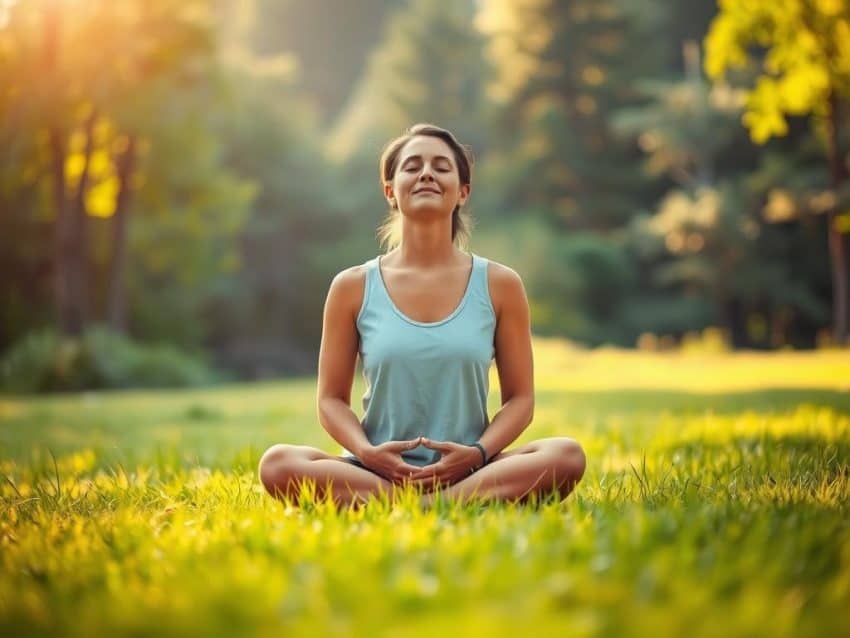Did you know that practicing gratitude can make you happier? It boosts chemicals like dopamine and serotonin, which improve your mood. By making gratitude a part of my daily life, I’ve seen big changes in my happiness and success.
A 2022 study showed that writing gratitude letters can greatly improve mental health. This shows how simple acts of thanks can build strong relationships and positive thinking.
Gratitude changes how we see the world and our connections with others. Finland’s high ranking in the World Happiness Report shows the power of gratitude. In this article, I’ll show how gratitude boosts mental health and leads to success and happiness.
Key Takeaways
- Gratitude enhances mood by increasing dopamine and serotonin levels.
- Practices like journaling or gratitude jars cultivate positive emotions.
- A gratitude-rich culture contributes to higher happiness levels.
- Engaging in gratitude exercises can improve productivity and reduce anxiety.
- Writing gratitude letters leads to sustained mental health benefits.
- Gratitude fosters social connections and enhances relationships.
The Link Between Gratitude and Happiness
Happiness is more than just feeling good. It’s about feeling joyful, satisfied, and having a sense of purpose. In today’s fast world, finding happiness can seem hard. But research shows that linking gratitude to happiness can improve our lives.
Being thankful helps us build emotional strength and strong relationships. It’s a way to find happiness and fulfillment.
Understanding Happiness in Today’s Context
Today, happiness means more than just feeling happy for a moment. It’s about finding meaning in our lives. I’ve learned that being thankful greatly affects my happiness.
This idea matches what positive psychology says. Feeling grateful can lead to a happier life. People who are thankful often feel more satisfied with their lives.
Research Findings on Gratitude and Happiness
Studies show that being thankful and happy go hand in hand. People who write down things they’re grateful for feel better and are more satisfied with life. For instance, being grateful helps us deal with stress and trauma better.
It makes us see our relationships in a better light. It also makes us want to help others. This kindness not only makes us happier but also makes our society more caring.
Benefits of a Gratitude Practice
Practicing gratitude has many benefits for both physical and mental health. It helps me see the good things in my life. This makes me appreciate the positive moments, even when things get tough. It leads to a more rewarding life.
Physical Health Benefits
Gratitude can make my physical health better. People who are thankful often have a stronger immune system and lower blood pressure. They also tend to eat healthier and exercise more, which is good for overall health.
Gratitude can also improve sleep and heart health. By focusing on the good, I’m more likely to keep up healthy habits.
Mental Health Improvements
Gratitude has a big impact on mental health too. It helps me feel less anxious and depressed. It boosts my self-esteem and makes me more hopeful about life.
Being thankful helps me stop negative thoughts and stay present. It also makes my relationships stronger. Sharing gratitude with loved ones makes me feel better emotionally.

How to Cultivate a Gratitude Practice
Practices that boost gratitude can change my daily life. Learning to cultivate gratitude makes every day more fulfilling. I’ve found simple daily exercises that bring gratitude into my life.
These exercises not only improve my mood but also my overall health.
Simple Daily Exercises
Keeping a gratitude journal has been incredibly powerful for me. Every day, I write down things I’m thankful for, no matter how small. Even simple things, like the smell of coffee or a friend’s kind word, can make a big difference.
Reflecting on one meaningful interaction each day helps me show real thanks to those who make my life better. Adding gratitude meditation to my routine gives me a peaceful five minutes. It helps me focus on the present and think about what I’m grateful for.
Creating Gratitude Rituals
Creating rituals around gratitude makes it even more meaningful. I often say thanks before meals or during quiet moments at the end of the day. Visual reminders, like sticky notes with positive messages, keep gratitude in mind.
Reflecting on my relationships helps me appreciate those around me. Sharing gratitude on social media spreads positive vibes and strengthens connections. These rituals improve communication and build respect among us.
Conclusion
Starting a gratitude practice is more than just a quick activity. It’s a strong way to boost happiness and success. Studies show that people who practice gratitude, like through journaling or counting blessings, feel better and are more satisfied with life. This practice helps build a positive mindset, making us more resilient and optimistic.
Looking back, I see that gratitude does more than just make us feel good. It can also improve our sleep, lower stress, and even help our health. By making gratitude a part of my daily life, I’ve seen big changes. It has positively affected my success in many areas.
Even though not everyone might see the same benefits, the research mostly supports gratitude’s value. It helps us deal with tough times and strengthens our relationships. I plan to keep practicing gratitude. I believe it will help me stay happy and successful.
